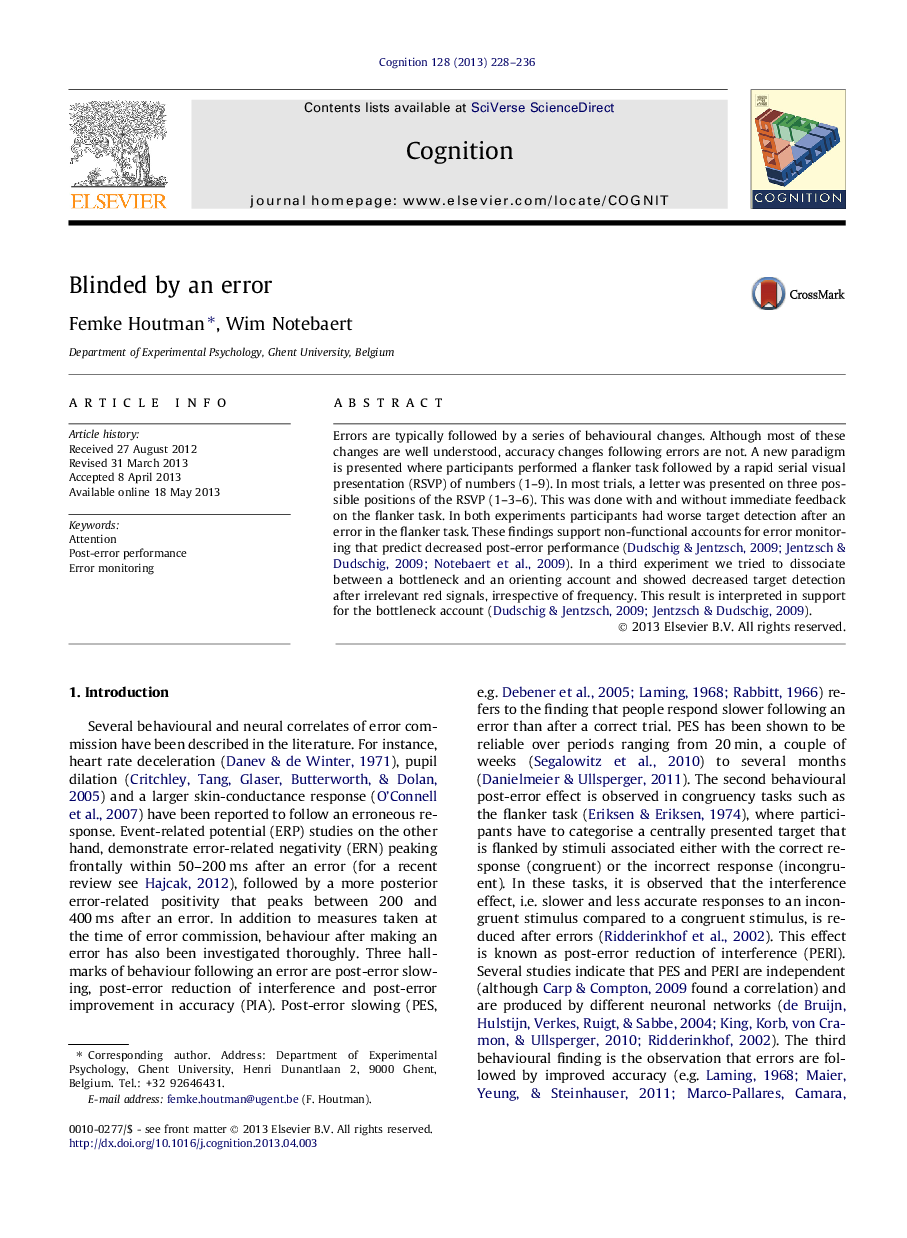| کد مقاله | کد نشریه | سال انتشار | مقاله انگلیسی | نسخه تمام متن |
|---|---|---|---|---|
| 926714 | 921896 | 2013 | 9 صفحه PDF | دانلود رایگان |

• Non-functional accounts for error monitoring predict decreased post-error performance.
• A new paradigm is developed to investigate post-error performance.
• In this paradigm a flanker task is followed by a rapid visual presentation of numbers.
• Target detection is worse after a flanker error, both with and without feedback.
• The same is found after irrelevant red signals, irrespective of frequency, supporting the bottleneck account.
Errors are typically followed by a series of behavioural changes. Although most of these changes are well understood, accuracy changes following errors are not. A new paradigm is presented where participants performed a flanker task followed by a rapid serial visual presentation (RSVP) of numbers (1–9). In most trials, a letter was presented on three possible positions of the RSVP (1–3–6). This was done with and without immediate feedback on the flanker task. In both experiments participants had worse target detection after an error in the flanker task. These findings support non-functional accounts for error monitoring that predict decreased post-error performance (Dudschig and Jentzsch, 2009, Jentzsch and Dudschig, 2009 and Notebaert et al., 2009). In a third experiment we tried to dissociate between a bottleneck and an orienting account and showed decreased target detection after irrelevant red signals, irrespective of frequency. This result is interpreted in support for the bottleneck account (Dudschig and Jentzsch, 2009 and Jentzsch and Dudschig, 2009).
Journal: Cognition - Volume 128, Issue 2, August 2013, Pages 228–236